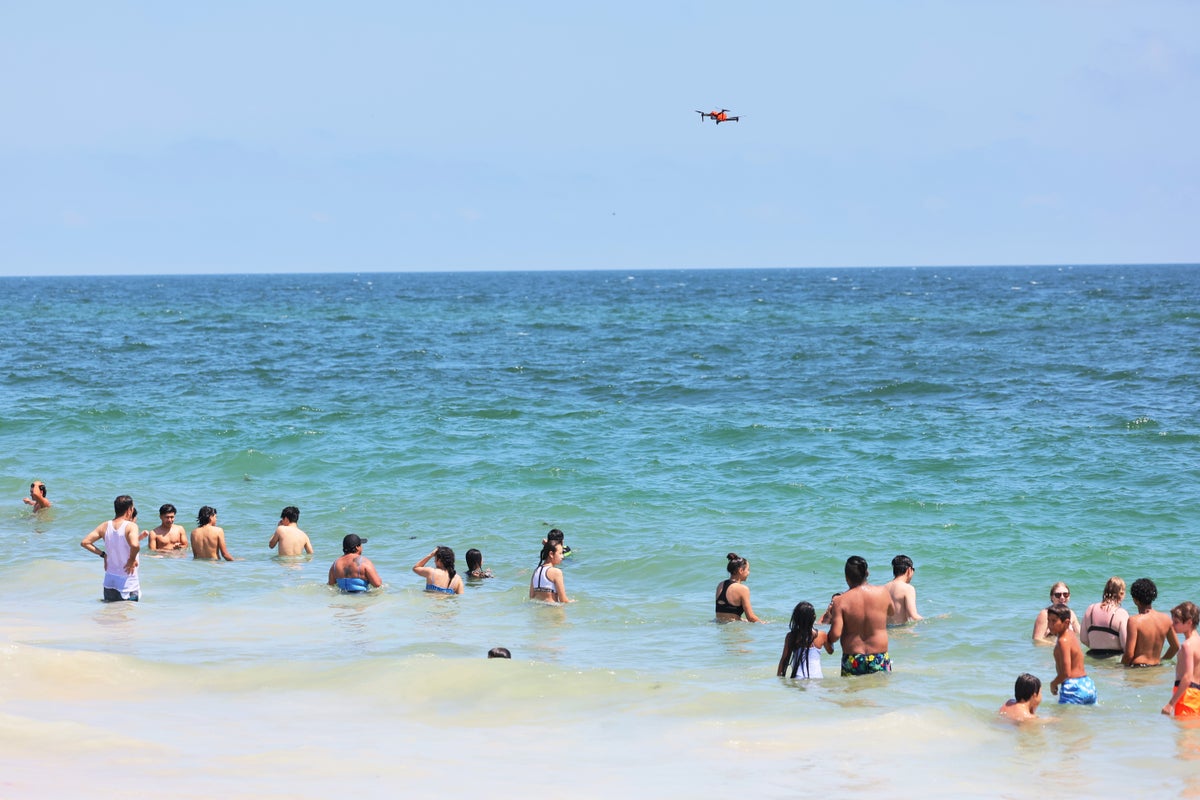
Ahead of the Fourth of July holiday weekend, state and local officials are ramping up protections for beachgoers to stave off any potential “Jaws” situations.
In New York, Governor Kathy Hochul announced that authorities were deploying dozens of drones in an effort to prevent any such life-threatening shark encounters. A 20-year-old woman has already been bitten this summer, sustaining minor lacerations to her foot, according to ABC 7.
“We are continuing to strengthen our shark surveillance capabilities and safety tactics at these beaches to help protect these treasured summertime traditions. I encourage all beachgoers to stay safe, stay alert and always follow the direction of lifeguards and park staff,” Hochul said in a statement.
The Empire State has added six drones of its fleet, with nearly 30 in operation. The drones help park staff and police to actively patrol the beachfront, looking for sharks and schools of fish that may attract them closer to the shoreline. On the ground and in boats, lifeguards scan and patrol the waters.
New Yorkers are advised to stay in areas where their feet can touch the bottom of the ocean, in addition to avoiding murky water, areas with schools of fish, and swimming at dawn, dusk, and during the evening.
Down the East Coast, other incidents have been reported in South Carolina and Florida, although officials there have not stepped up surveillance. Three young girls were transported to hospitals, sustaining non-life-threatening injuries, according to The Hilton Head Sun.
In Florida, 9-year-old Leah Lendel nearly lost her hand after she was bitten while snorkeling near Boca Grande.
“I didn’t see anything — I was snorkeling and went up to breathe,” she recalled. “Something hard bit me and tried to take me away.”
Florida is consistently the state with the most unprovoked shark bites. A tally by Florida Museum’s International Shark Attack File recorded 14 last year, none of which were fatal. The northeastern Volusia County was responsible for more than half.
However, the total was lower than Florida’s five-year annual average of 19 incidents, and the national and international tallies were lower than in previous years. There was one death in the U.S. in 2024 from a shark attack.
There are a number of reasons which lead sharks to bite humans. Some sharks have bad vision and can mistake people for seals. Research in April found that shark bites may be “survival instinct.” Swimmers may also just be in the wrong place at the wrong time when sharks are following prey.
Ways to reduce the risk of a bite include staying close to shore, swimming with a friend, avoiding wearing jewelry and not splashing around too much.
Still, the chances of actually being bitten remain slim. People are more likely to die in an incident involving a champagne cork or be struck by lightning than to die from a shark attack. Whereas humans kill some 100 million sharks every year.
“There’s many more things people need to worry about before they worry about sharks. So go to the ocean, listen to beach safety. People do what the lifeguards say get out of the water when they say it’s not safe to swim and enjoy it when it is safe,” International Shark Attack File Director Dr. Gavin Naylor told WBRC.
